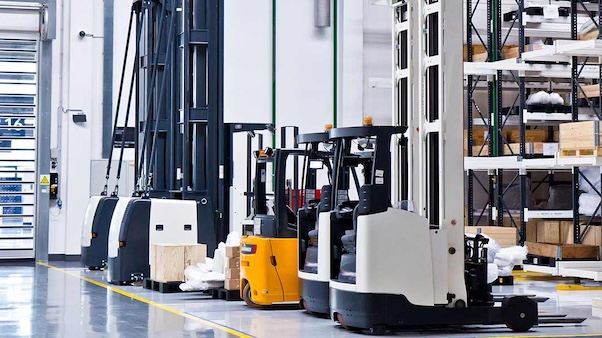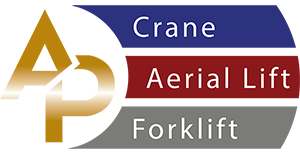
There was a day when the mention of forklifts powered by electricity but internal combustion (IC) engines was laughed at.
No serious warehouse or storage yard considered using alternate energy sources in place of proven gasoline, diesel or liquid petroleum gas (LPG) fuels that fired their IC forklifts.
Forklifts need power, they thought. Forklifts also need speed, high lift, and climbing ability. They need to run all day without downtime and be able to function outside in rough terrain during inclement weather. That was the view of most forklift owners and operators - at least, that was the view until their perceptions were proven wrong.
In the past, electric battery-powered forklifts have taken a stronghold in the lift truck and material handling environment and for good reasons. The advantages of a forklift powered by electricity now far outweigh the disadvantages. The limitations and drawbacks that once made electric forklifts inefficient and impractical have been put to rest by advancing technologies and proven performance.
Increasingly, a number of industrial companies are switching to electric forklifts, because energy-efficient, environmentally friendly machines can do virtually anything emissions producing IC forklifts do. Electric forklifts are a realistic alternative to liquid-fueled lift trucks and are more economical to operate, equally powerful, easier to maintain, safer, quieter, and cleaner.
Companies planning to purchase, replace, or upgrade their current forklift capabilities must first assess their operational needs and ask some basic questions about the service required from their forklift.
That's the first step in deciding whether the advantages of an electric forklift give a better payback over IC lifts.
- Do they need an internal combustion engine, or will an electric-powered forklift work better?
- Are they operating indoors or outside?
- How many hours per week does the forklift operate?
- What is the maximum weightlifting capacity required?
- What height does the forklift have to reach?
- What is the turning radius within the storage aisles?
- What materials are being handled?
- Are perishable items like food and produce exposed to exhaust fumes?
- What are the acceptable noise and fume levels?
- What are the operator health and safety expectations?
- What are the environmental impacts of the IC versus electricity?
- What are the fuel storage conditions?
- What are the maintenance costs and schedules?
- What is the lifecycle and longevity needed for the forklift?
- What is the purchase or rental cost of an electric forklift compared to an internal combustion machine?
- What are the fuel consumption costs going to be?
In every other question, the performance, costs and safety considerations can be met or exceeded by buying or renting an electric forklift. There once was a notable difference in performance between electric forklift and IC truck performance but, nowadays, technology has given electric forklifts a leading edge in the commercial forklift market.
About 30 years ago, electric forklifts didn't have the power, speed or longevity that ICE trucks provided. That's changed and no longer true. Where in the 1990s the market was 60 percent ICE powered lifts and 40 percent electric, now the market share has reversed. Today, 60 percent of forklifts are electric and only 40 percent are fossil-fueled.
The reason is simply that technological advancements have made electric forklifts compete and exceed on so many levels. The pros of an electric forklift far outweigh the cons, and one of the top advantages of an electric forklift truck is the operating costs.
ELECTRIC FORKLIFT OPERATING COST ADVANTAGES
Studies prove that electric forklifts are cheaper to operate and maintain compared to IC forklifts. In their lifetime, electric forklifts cost less for fuel, require lower maintenance as they have fewer moving parts, need fewer fluids to replace like engine oil, coolant, and filters, and have considerably fewer lost hours from maintenance downtime and breakdown.
For example, a study in Ohio found the cost to recharge an electric forklift can range from $1.50 to $4.50 per eight-hour shift while the cost of operating a liquid propane gas (LPG) lift runs between $18 to $25 per bottle fill. These rates depend upon location, but it's clear that energy-consumption costs for an electric forklift are far less.
Elevate your skills with our electric forklift certification program. Get the training you need to operate electric forklifts safely and effectively, showcasing your expertise in the evolving landscape of material handling.
ELECTRIC FORKLIFT MOTOR AND BATTERY ADVANTAGES
Technology has replaced the old direct current (DC) electric motors exclusively with modern alternating current (AC) motors. Outdated DC motors were underpowered and were only able to draw power from the available battery voltage. As the battery charge reduced, so did the motor's power output and the machine got weaker as the shift progressed. Few DC electric forklifts could survive a full day's duration, especially in heavy applications, and the downtime to recharge was unacceptable.
Forklifts with AC motors maintain their performance as battery voltage reduces. The operator can rely on full power throughout the shift until the voltage is so low the battery requires recharging or swapping out with a fresh one. AC motors are highly energy-efficient and their outstanding performance is boosted by advancements in battery technology.
Electric-powered forklifts use several different types of energy storing and supplying batteries. Forklift batteries are large, weighty and expensive compared to automotive batteries. However, a lot more electric draw is expected to operate a heavy forklift than to start a car.
Most forklift batteries are lead-acid based, where electricity is stored in liquid-filled cells and supplied by cables to the electric motor. Hawker, an American-based battery manufacturer, is the world's leading brand of lead-acid batteries and stays on the cutting edge of technology to provide highly efficient, low-cost, environmentally friendly and dependable motive power solutions.
Hawker offers WATERLESS, ENERGY-PLUS, ENVIRLINK, POWERLINE and TOP POWER products that provide the advantage of forklift batteries that are cost-effective, safe and virtually maintenance-free. Hawker batteries are also quick to recharge, especially when used with their high-frequency smart chargers.
Quick charging from Hawker batteries allows an electric forklift to be topped up during shift breaks. Spare batteries can also be changed in less time than it takes to refill the bottle or tank on an IC forklift. Greater operating time and far less cost are two of the biggest advantages of today's electric forklifts. However, cost and efficiency aren't the only big advantages electric forklifts have to offer. These green machines are easy on the environment as well as on the health and safety of workers.
Stay ahead of the curve with our electric forklift training program. Get the specialized skills needed to operate and maintain electric forklifts safely and efficiently, contributing to a greener and more efficient workplace.
